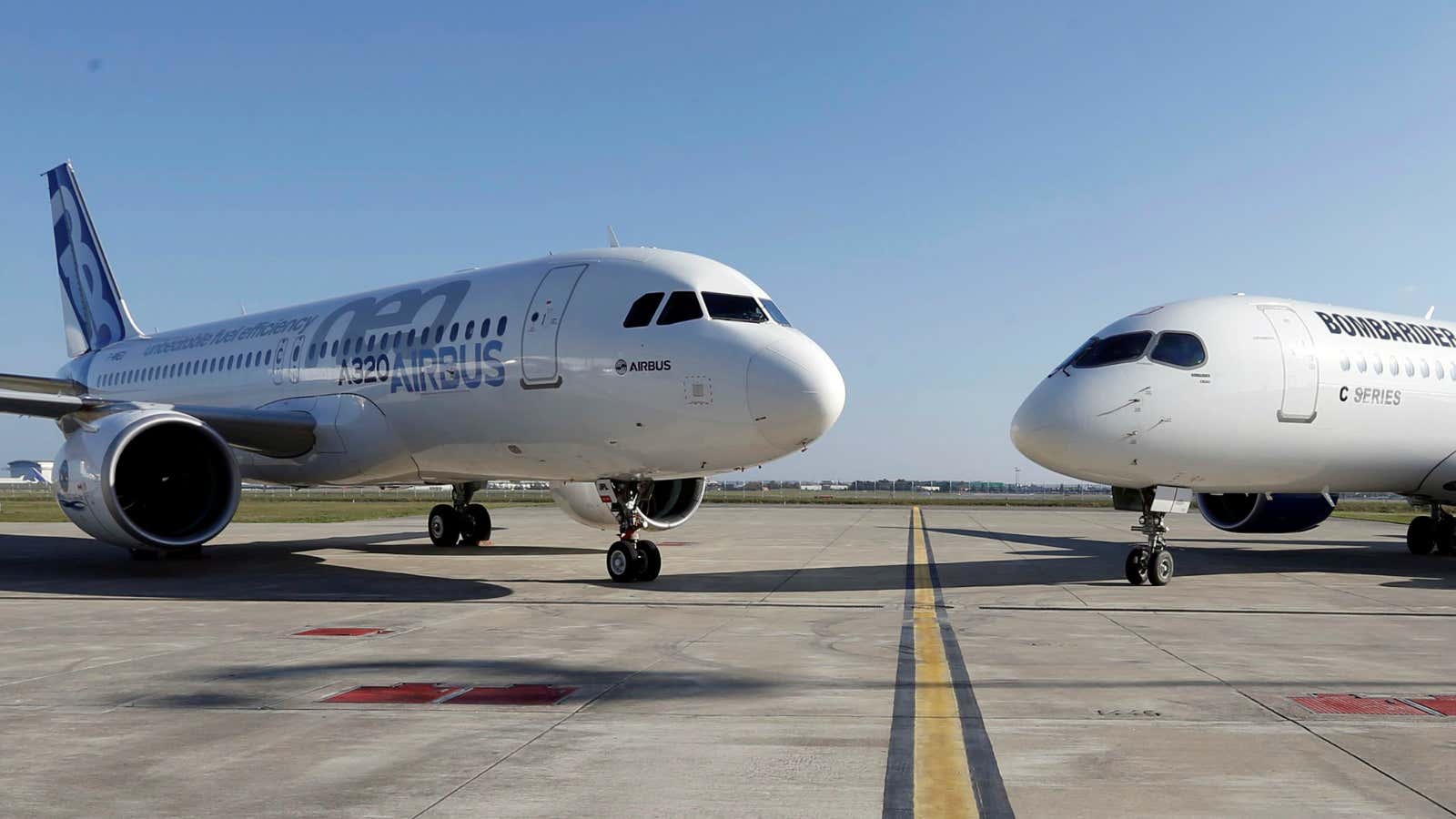IndiGo’s troubles with its Airbus A320neos continue.
Hours after a Lucknow-bound IndiGo flight suffered a mid-air engine failure and made an emergency landing in Ahmedabad on March 12, the directorate general of civil aviation (DGCA) ordered the grounding of 11 Airbus A320neos, fitted with Pratt & Whitney (P&W) engines. Of IndiGo’s 156 aircraft, 32 are A320neos.
The DGCA order indicates the aviation regulator’s increasing uneasiness with the frequency of in-flight shutdowns of A320neos. Between Feb. 24 and March 12, two such cases have been reported by IndiGo and one by GoAir, each fitted with only one P&W engine, the DGCA said in a press release.
The regulator had last month ordered IndiGo, India’s largest airline, to ground three A320neos fitted with both P&W engines, following an “emergency airworthiness directive,” or a safety warning, issued by European Aviation Safety Agency on Feb. 09. However, 11 other IndiGo and GoAir planes, fitted with just one of the affected engines, had been permitted to continue flying.
Taking a more severe stance this time, the DGCA has grounded eight IndiGo and three GoAir planes fitted with even one affected P&W engine. It has also asked the two airlines not to refit these aircraft with other engines in their inventory.
The move is likely to impact 75 flights, and around 13,000 seats, the newspaper The Economic Times reported citing industry estimates. On March 13, IndiGo had already cancelled 47 flights.
“The affected passengers would be accommodated on other flights on our network. Safety is our top priority,” IndiGo said in a statement.
Meanwhile, the DGCA isn’t impressed by the response from P&W, a subsidiary of US-based United Technologies.
“P&W in its latest communication has also not given any firm commitment as to when the issue on the engines… will be resolved and informed that all affected engines will be replaced by early June 2018,” the DGCA release said. “There is no concrete proposal at this stage to address this issue.”
The DGCA order is likely to impact airlines’ revenues as they scramble to accommodate passenger traffic, Mark Martin, CEO of aviation consultancy firm Martin Consulting, said.
“If it is risky flying an aircraft with engines having a high rate of in-flight shutdowns, then it’s much better you don’t fly it, as a precaution to avert a catastrophe. Unfortunately, airlines will have a hard time keeping things going from a network perspective, and (it) would mean a significant revenue hit, for sure,” Martin told Quartz.
However, if the issue is serious enough, the DGCA may even ground all P&W-fitted A320neos in India.
“As far as safety is concerned, there’s no compromise. Grounding all the neos would be a drastic step, but ultimately if it is found that the issue is severe enough…then that should be done,” an aviation expert from an international auditing and advisory firm said, requesting anonymity.
